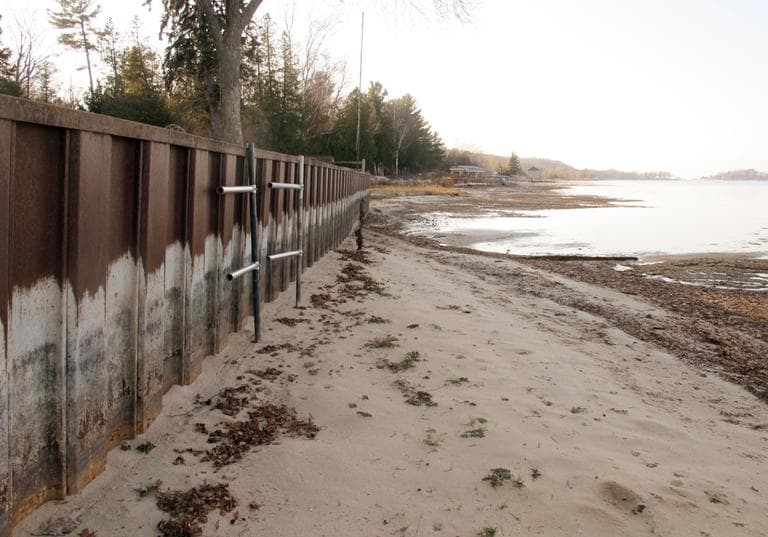Advertisement
Are The Great Lakes Drying Up?
Resume
A new study from the U.S. Army Corps of Engineers finds that water levels in two Great Lakes - Lake Michigan and Lake Huron - have declined to record lows, and that water levels for the other Great Lakes are also well below average.
The Great Lakes account for 90 percent of the country's surface water reserves. The lakes are at their lowest levels since recording of water levels began in 1918.
Scientists say the declining levels are threatening wildlife and commerce, as well as quality of life for the 25 million people who live in the Great Lakes Basin. They attribute the issue mostly to changes in the climate.
"What do we do? Do we dredge more often?" asked Alan Steinman, director of Annis Resource Water Institute in Muskegon, Mich. "This is how society needs to adapt - not just with lower water levels in the Great Lakes, but also to rising sea levels like we saw in Sandy. This is really the new normal."
Guest:
- Alan Steinman, director of Annis Resource Water Institute in Muskegon, Mich.
This segment aired on February 8, 2013.